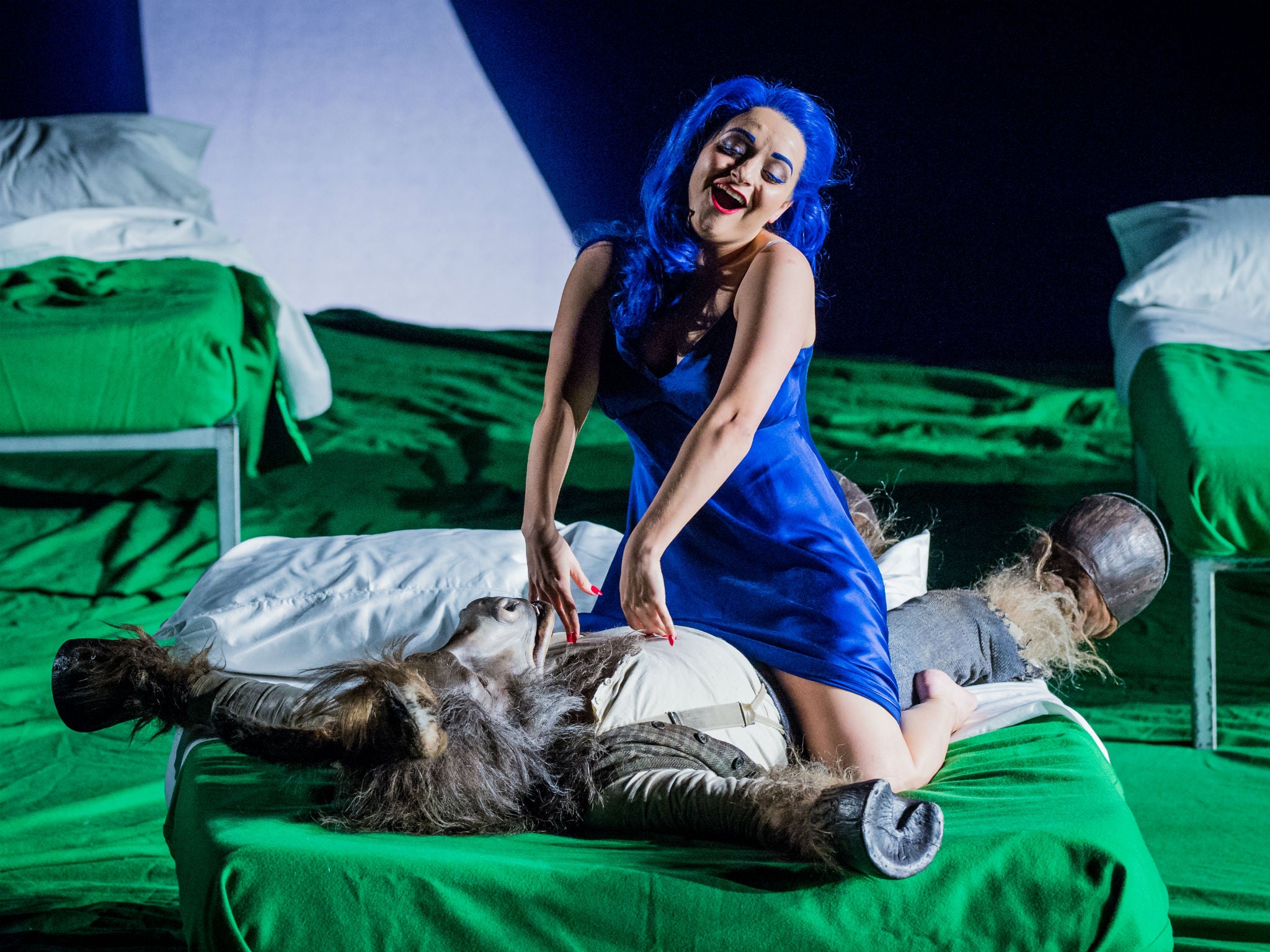A Midsummer Night's Dream, Coliseum, London, review: Unalloyed fun from start to finish
The particular strength of this production lies in the way the third act takes off into high fantasy

English National Opera had two fine house productions to choose between for their revival of Britten’s A Midsummer Night’s Dream. They could have chosen Christopher Alden’s provocative version set in an all-boys school in the Fifties, in which Oberon and Tytania are teachers, the Mechanicals work on site, and the lovers are sixth formers, while the lusted-after Changeling Boy acquires an unsettling (and these days awkwardly topical) dimension. It was probably this latter element which persuaded ENO to play safe – or at least safer, given that Britten’s paedophilia can never be entirely glossed over – and go for the production by Robert Carsen, which is unalloyed fun from start to finish.
For this, Michael Levine has designed a world of morphing and flying double beds with green sheets, among which the characters get confused, then lost, then driven mad, before their eventual restoration to sanity. The treble fairies – clad in Hockney green and mauve, like everything else on stage – perform well-drilled tricks led by an India-rubber Puck (Miltos Yerolemou), a comic Caliban whose charisma powers the entire show. The tussle between Oberon and Tytania over the boy they both desire is largely played down; the particular strength of this production lies in the way the third act takes off into high fantasy, with the lighting becoming a virtuoso performance in itself.
Christopher Ainslie’s Oberon is cleanly sung but under-projected; Soraya Mafi’s vivid Tytania has the right imperiousness, and her wooing of Joshua Bloom’s splendidly sung Bottom is wickedly suggestive. Eleanor Dennis’s spitfire Helena ensures that the weather in the parallel relationships of the young lovers – Clare Presland, David Webb, and Matthew Durkan being the others – changes vigorously from calm to storm and back again. It takes some time before the Mechanicals catch fire, but when they do – in a brilliantly directed play within a play – their comic timing is perfect: Bloom, Graeme Danby, Simon Butteriss, Timothy Robinson, Robert Murray, and Jonathan Lemalu all emerge as farceurs to the manner born.
Alexander Soddy conducts with a fine sensitivity to Britten’s effects; this opera represented his most magical blend of voices and instruments, and its Balinese echoes are rendered here with persuasive delicacy.
Subscribe to Independent Premium to bookmark this article
Want to bookmark your favourite articles and stories to read or reference later? Start your Independent Premium subscription today.

Join our commenting forum
Join thought-provoking conversations, follow other Independent readers and see their replies